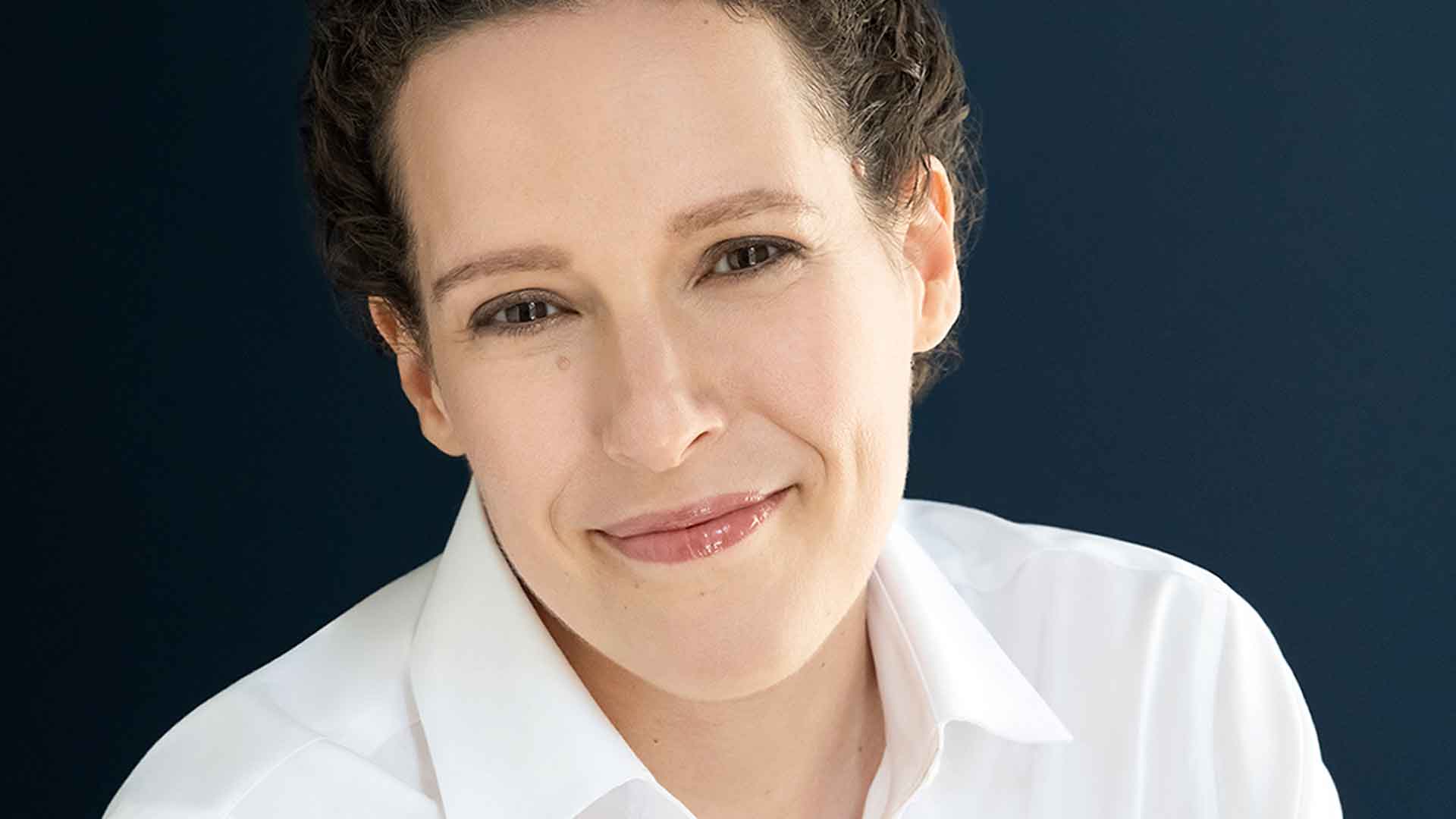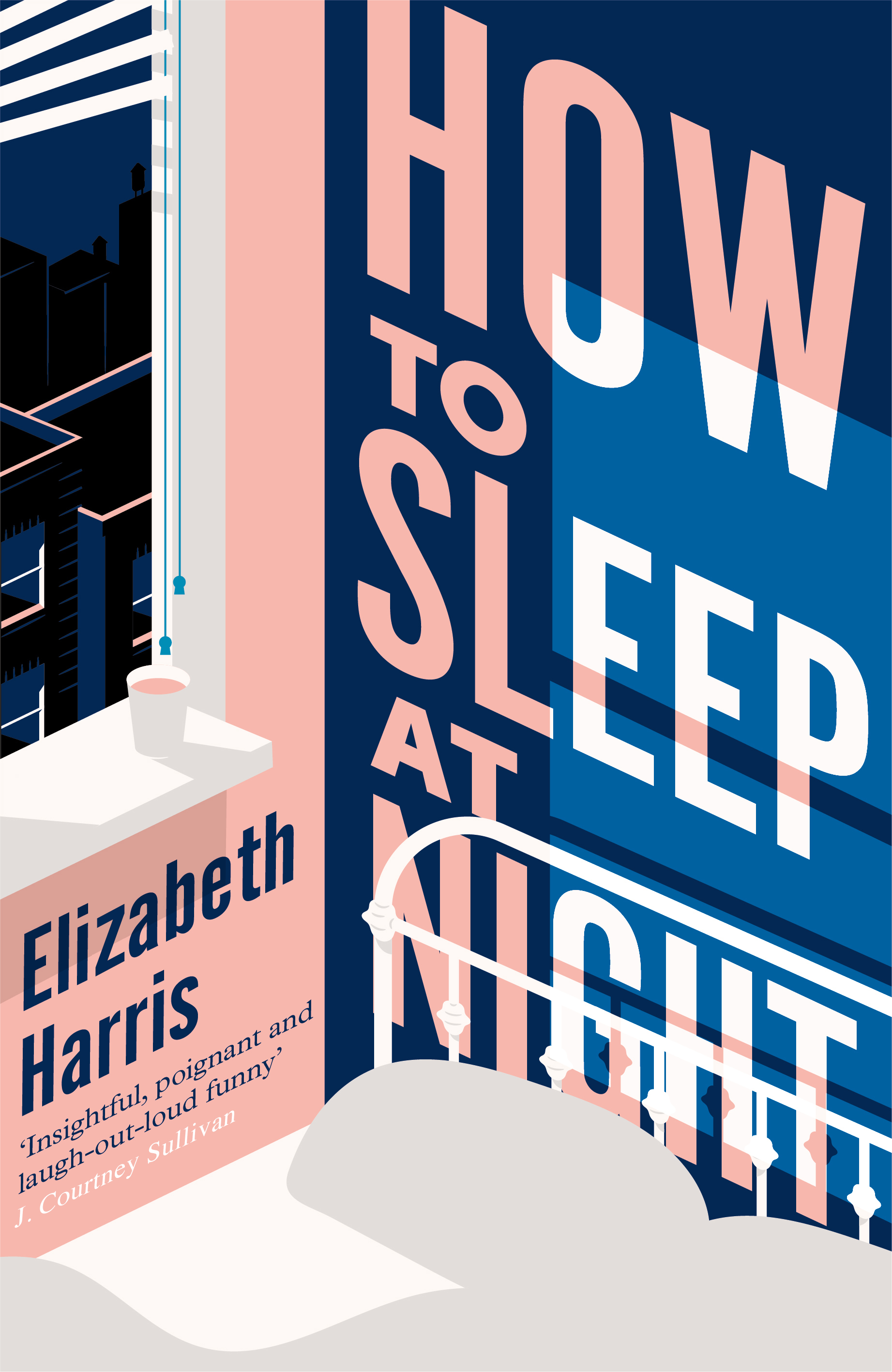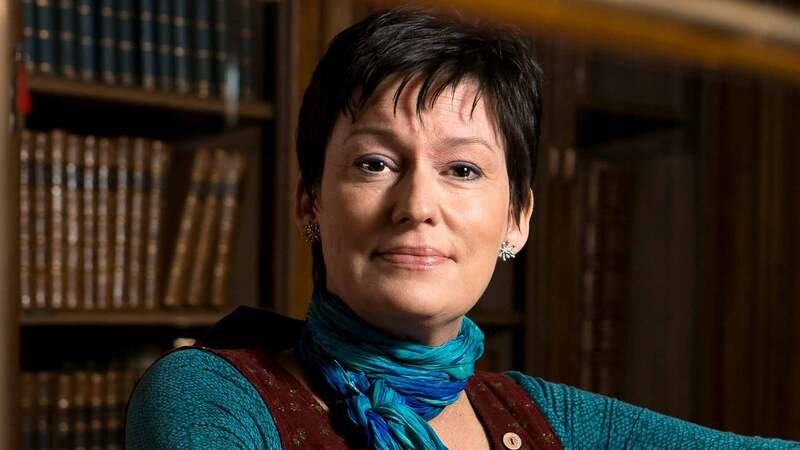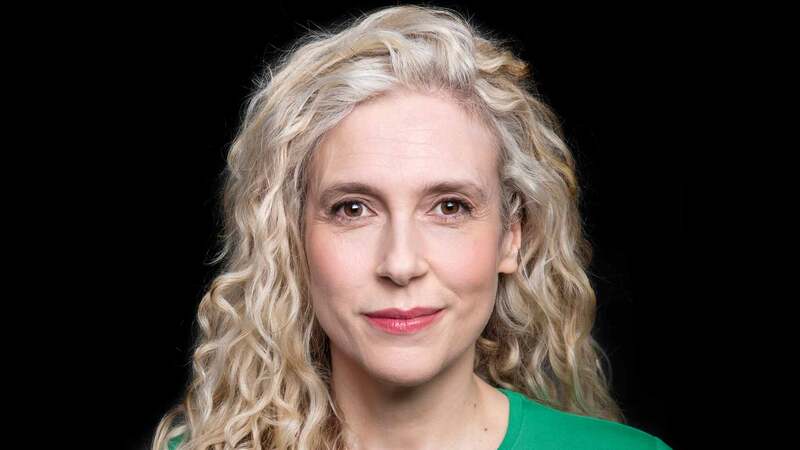You are viewing your 1 free article this month. Login to read more articles.
Elizabeth Harris’ timely novel explores marriage, ambition and US politics
 Madeleine Feeny
Madeleine FeenyNew Titles Fiction Previewer
I compile the monthly New Titles: Fiction. A freelance critic and editor, I previously held ...more
Elizabeth Harris’ How to Sleep at Night couldn’t be timelier, coming hot on the heels of November’s US presidential election.

New Titles Fiction Previewer
I compile the monthly New Titles: Fiction. A freelance critic and editor, I previously held ...more
Elizabeth Harris is usually the one asking the questions. Over the course of a 19-year career at the New York Times, reporting on subjects from education to politics, arts to business, to her current role covering books and publishing, she has conducted many hundreds of interviews, profiling authors including Lauren Groff, Liane Moriarty and Matt Haig. So ingrained are her instincts that, as we meet over video call to discuss her début novel, she is itching to cross-examine me.
In true journalist style, How to Sleep at Night couldn’t be timelier, coming hot on the heels of November’s US presidential election. Praised by Dolly Alderton for its wit and insight, this entertaining comedy of manners traces the effect of personal ambition on relationships and explores the connection between our politics and our identity. It follows Ethan Keller and Gabe Alter, a happily married gay couple living in New Jersey, whose lives are upended by Ethan’s decision to run for Congress as a Republican.
Gabe, a schoolteacher, is a Democrat to the core, and the political differences that the pair have become adept at ignoring suddenly become glaring. Gabe must shoulder the lion’s share of the domestic duties—they have a five-year-old daughter, Chloe—while being publicly associated with values he detests. As Ethan’s campaign ramps up amid growing press scrutiny, Gabe must navigate the galling assumptions of friends, colleagues and strangers, without betraying his husband.
Meanwhile, Ethan’s sister Kate is a political reporter who gets sidelined from her own beat, in keeping with journalistic impartiality ethics. At 40, the hunger that fuelled her career success is dwindling and, burnt out by an unrelenting news cycle, she reconnects with an old flame. In their twenties, Nicole was an aloof career girl who trampled on Kate’s heart, but now she is a frustrated stay-at-home mom, married to handsome-but-sagging Austin, who barely takes his eyes off the golf. Like Gabe and Ethan, they have grown apart politically and mostly sidestep the topic at home.
Although Nicole adores her two children, she is searching for an escape route from Austin’s detachment. Ironically, she never gave Kate a chance because back then Kate was flailing and unemployed. When Nicole reaches out, Kate plans to take “an elegant victory lap” and is as surprised as Nicole herself by the direction Nicole’s life has taken.
Many people disagree with their partners, but Harris believes this dynamic has become more fraught than it used to be
Harris set out to write about people who have “lost the thread of their own lives—who they are in the world doesn’t match how they see themselves”. The seed was planted by observing politically divided couples and imagining the fallout if one of them ran for office. The novel also captures the delicate shifts in power and attraction as people evolve over the years.
It recalls Torrey Peters’ Detransition, Baby in that it envisages a particular scenario with a set timeframe, forcing the characters to confront hard truths about themselves and their relationships, and elegantly plays it out to its conclusion. When she started writing, Harris read a lot of poetry—Ada Limón, Louise Glück, Diane Seuss—to reinforce rhythm and word choice. She is also a rigorous cutter. The result is a concise, engaging prose style that zips along in a close third-person, moving from animated dialogue to the characters’ inner lives.
How to Sleep at Night highlights the brutal exposure that running for public office entails, the way a candidate’s entire life becomes fair game to be picked over by the press and weaponised by opponents. As a gay Republican who used to be a Democrat, Ethan is an eye-catching candidate, and his campaign tries to make a virtue of these potential shortcomings. There are certain political expectations of gay people, says Harris, but not everybody aligns with them. (There have in fact been a small number of openly gay Republican Congressmen, including George Santos and Jim Kolbe, who was forced to come out in office and was re-elected.) Raised by a supportive mother, Ethan feels his sexuality is a “non-issue”. Gabe wonders how his perspective would differ “if he’d been tripped in the hallway and called a faggot the way Gabe had been in high school”.
The novel also speaks to the increasing political tribalism of the past decade. Many people disagree with their partners, but Harris believes this dynamic has become more fraught than it used to be. “That entrenchment and demonisation of the other side has got a lot worse.” The escalating tensions between Ethan and Gabe will resonate with any British readers who witnessed bitter domestic schisms over Brexit. The story examines the different ways couples react to external and internal pressures, and analyses what is truly important to the health and survival of a relationship.
Discipline during lockdown
Harris, who lives with her wife and children in New York, has always wanted to write a book, but the demands of her job and parenthood rendered it a pipe dream until 2021 during the pandemic, when she decided to “just write the top and not worry about where it’s going”. Her reporter’s training lent her discipline. “I’ve written stories on subway platforms and in middle-school gymnasiums. ‘The perfect is the enemy of the good’ is a very journalistic saying.” Like Gabe supporting Ethan in the novel, the endeavour required significant sacrifice on the part of her wife, who picked up the slack on childcare. Harris’ experiences of parenthood, which has “fundamentally changed [her] in so many ways”, shine through in the tender scenes involving children.
As an industry insider, Harris is entering the publishing process with eyes wide open. “I wonder sometimes if I know too much,” she laughs. She has only been covering the book trade for four and a half years, but that’s long enough to know how hard it is for first novels in a “business you can’t control”. Some authors have advised her to focus on the next project, as publishing a début is such a “weird experience”, so she’s started writing her second. Otherwise, she’s just trying to enjoy the ride, “because who knows, right?”










